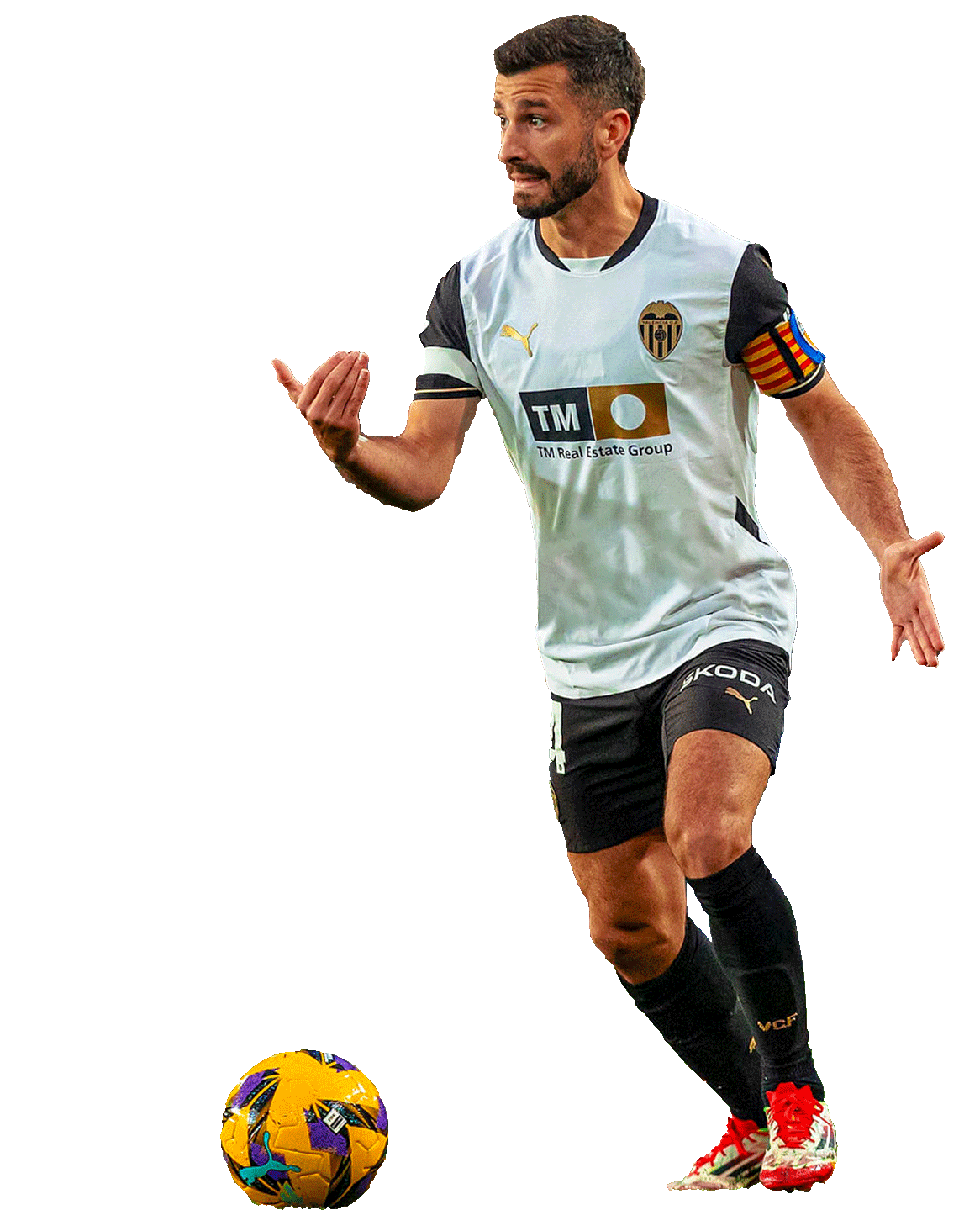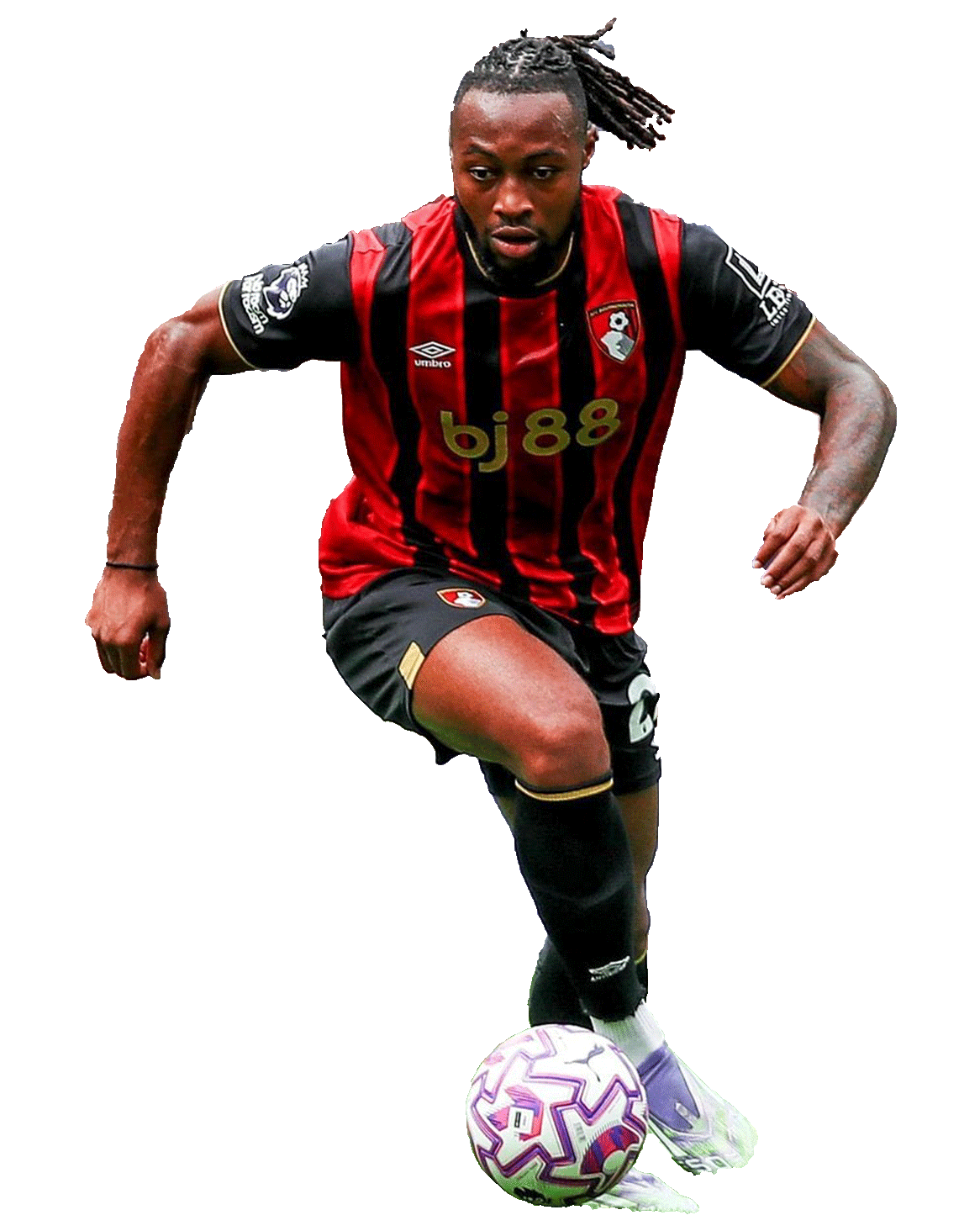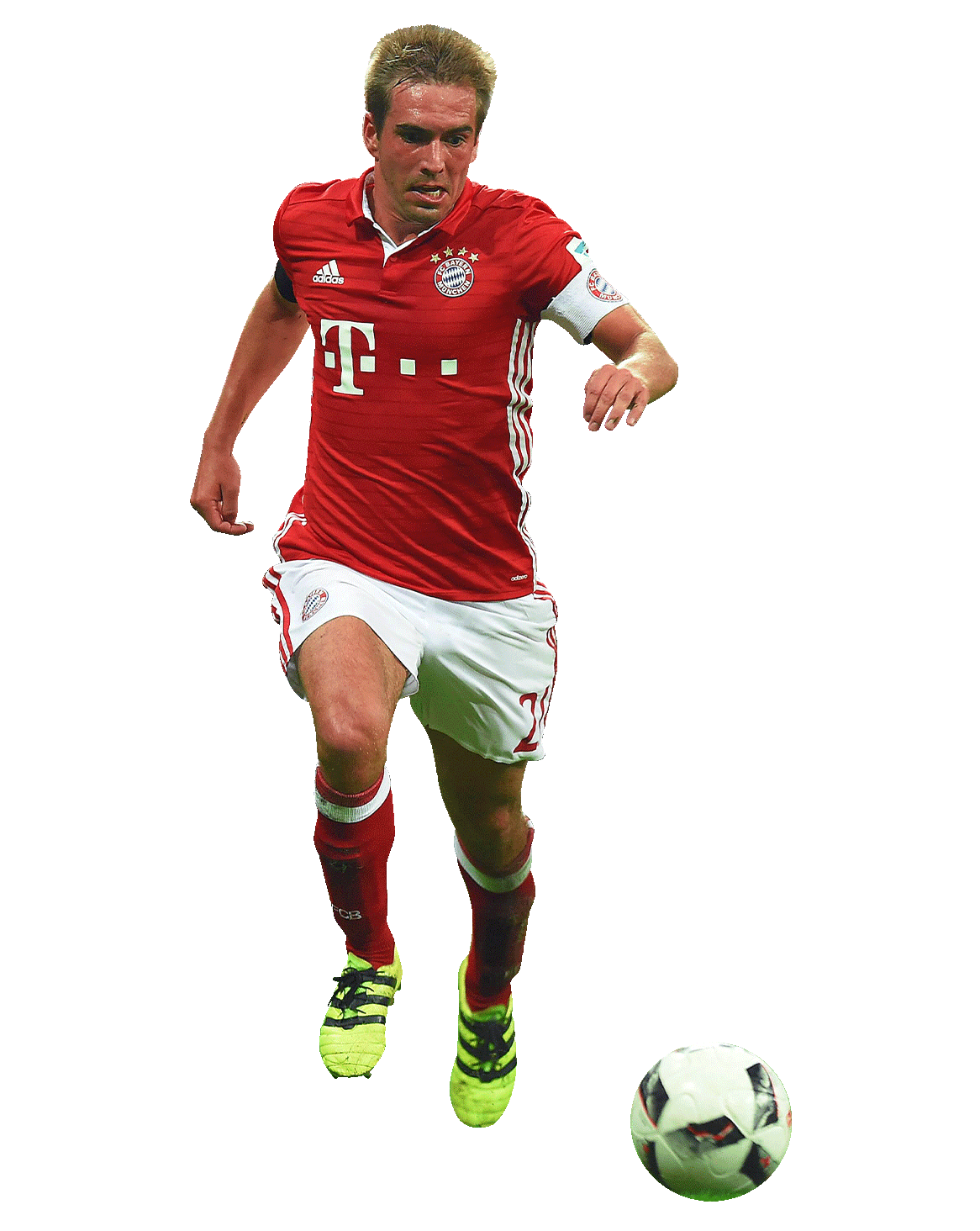


José Gayà
~Gayà
May 25' 1995

Spain
The Exhilarating Story...
In a quiet town in Alicante province, Spain, on 25 May 1995, a boy named José Luis Gayà Peña was born. From those early days in Pedreguer, he carried a dream many youth in Spain and beyond share: to become a professional footballer. But his path would not be smooth. It would be filled with challenges - physical, mental, institutional but also help, support, mentors, and a steadfast belief in himself. Today, Gayà is captain of Valencia CF and a Spain international, and his story offers lessons for every young athlete. In this blog, we’ll explore his life, struggles, triumphs, and how a structure like 8lete can be the bridge between talent and success. Though not much is widely documented about his family in media, some sources indicate that his father’s name is José Luis Gayà and his mother is Eloisa Peña, and he has a brother named Alejandro (Álex) Gayà. While these details are sparse and should be taken cautiously, what is clearer is that Gayà’s family provided a foundation of support, belief, and sacrifice that allowed him to chase a footballing dream rather than being grounded by constraints. Challenges and Early Struggles Every young player faces tests, and for Gayà they came in several forms: - Competition and expectations To rise through Valencia’s academy, he had to compete with many talented peers. Many youth players fall away under pressure, injuries, or lack of opportunities. Gayà had to prove himself at each level. - Physical and tactical adaptation The switch from forward to left-back demanded new skills, discipline, and learning. It’s one thing to score goals in youth football; another to defend, track runs, read the game, and deliver consistently over 90 minutes. He had to adapt his mindset and body. - Injuries and setbacks Later in his career, he suffered serious issues. For example, he endured a hamstring rupture that kept him out for months, requiring surgery and rehabilitation. These injuries tested his mental resilience - doubts, uncertainty, and fear of not returning to full strength. - Public and fan pressure As he became more senior, Gayà faced criticism from fans, especially when Valencia had poor results. There was an instance in late 2025 where Valencia lost at home, and fans booed their captain. Gayà responded to the crowd, which led to more controversy. Navigating such public scrutiny requires mental toughness. - Discipline and mistakes Despite being a relatively clean player, he has had four expulsions over a long career - rare, but each one a painful moment to bear. One red card in a match against Osasuna affected his team and reputation, showing how even top players make lapses. From an early age, José Gayà was immersed in football. He joined Valencia’s youth academy at around age 11 (2006), originally playing as a striker and reportedly scoring more than 60 goals in a season at youth level before being converted to a left-back. That positional switch would shape his identity as a modern full-back: someone who could defend, attack, and carry forward the momentum. Turning Points and Helpers Along the Way Gayà’s journey was not solitary. Many coaches, teammates, family members, physiotherapists, and staff played roles in his growth. While not all are publicly named, we can draw from interviews and his own reflections the patterns of support any young athlete needs. - Youth coaches and academy trust: In interviews, Gayà credits Valencia’s academy system and coaches for believing in him and giving him opportunities to step up gradually. - Mentors and senior players: Having older, more experienced teammates or legends in the club around you can help you navigate pressure, match mindset, and professional habits. - Medical and fitness staff: When injuries struck, the rehabilitation processes helped him return. In 2024, he travelled to Finland for tests and recovery, eventually receiving medical clearance to resume training. - His family: The emotional backing of family especially in times of doubt - matters immeasurably. Gayà has referenced in interviews the sacrifices, patience, and presence of his loved ones. - Personal mindset: Gayà has spoken about making sacrifices - leaving friends, pushing limits, staying disciplined not just relying on talent. That internal drive becomes a companion through the hardest periods. A notable recent development is Academia Gayà - Los Troncos, a youth academy project Gayà launched with content creator Perxitaa and Paiporta CF. They aim to nurture young players from early age categories, combining sporting and social aims. This is an example of paying forward the support he received, and creating a structured ecosystem for new talent. Despite the turbulence, Gayà has reached remarkable milestones: - First team breakthrough: He made his first-team debut in 2012 at age 17, stepping into Copa del Rey matches and gradually being entrusted with La Liga fixtures. - Securing a starting role: Over time he became Valencia’s first-choice left-back, a mainstay in defense and offense. - Captaincy: He became captain of Valencia, anchoring the team and becoming a symbol. - Appearances record: As of 2025, he has played over 370 matches for Valencia, entering top ranks of most appearances in the club’s history. - Copa del Rey victory: In 2019, he was part of the team that lifted the Copa del Rey. - National recognition: He broke into the senior Spain national team, first appearing in 2018 and taking part in tournaments like the European Championship. These achievements are not just athletic; they carry symbolic weight. Gayà is proof that consistency, loyalty, and resilience can create a legacy. He often states that he wants to achieve trophies at Valencia, seeing his journey as aligned with the club’s resurgence. Lessons from Gayà’s Journey for Young Players What can aspiring footballers (or athletes generally) learn from José Gayà’s story? - Talent is only the beginning: Natural skill may open doors, but discipline, learning mindset, and adaptability matter more over time. - Embrace struggle: Injuries, failure, criticism they are inevitable. How you respond defines your trajectory. - Build your support system: Coaches, mentors, family, medical staff, peers - they all matter. Invest in relationships, listen, seek guidance. - Give back: Gayà’s academies, youth initiatives, and commitment to his home region show that legacy is sustained by lifting others. - Stay grounded and patient: Growth in sports is rarely linear. There are peaks and valleys. Keeping focus and humility helps weather storms. How 8lete Can Make a Difference in Young Players’ Lives From José Gayà’s journey, a well-crafted structure like 8lete can provide exactly the scaffolding that bridges raw potential and elite success. Here’s how: - Holistic mentorship and coaching: Beyond technical and tactical training, 8lete can connect youth to coaches, psychologists, nutritionists, and mentors who guide them through challenges and not just on the field but off it. - Pathway visibility: Many young talents get lost for lack of exposure or networking. 8lete can offer platforms (talent showcases, video highlights, match reports) to help them get seen by scouts, clubs, and academies. - Injury management and rehabilitation access: When physical setbacks come, players need structured recovery plans, medical support, physiotherapy - areas often inaccessible to grassroots players. 8lete can partner with clinics and trainers to offer resources. - Peer and alumni network: Having a community of those who have passed similar paths fosters resilience, advice-sharing, and moral support so players don’t feel alone in their journey. - Educational and life-skill training: Not all youth will become professionals. 8lete can complement sporting training with academics, financial literacy, mental health awareness, identity beyond sport so even if a career stalls, a life is built. - Giving back structures: Inspired by Gayà’s academy, 8lete can help successful players return value by mentoring, starting clinics, or supporting regional academies, creating virtuous cycles. By combining those elements, 8lete can act as the “accelerator” that turns raw talent into a sustainable, resilient career. José Luis Gayà Peña’s journey from a child in Pedreguer, through struggles, injuries, fan pressures, and internal doubts, to captaining Valencia and launching his own academy is a testament to what belief, support, endurance, and consistent effort can build. His story is far from over, his legacy is still being written. For young players, Gayà’s narrative proves that obstacles don’t have to become blockades. What matters is how you respond, who you surround yourself with, and how you keep progressing. With a system like 8lete offering the tools, networks, holistic support, and visibility, more youth can walk a path like Gayà’s not by chance, but by design.
“
On the pitch, I go out there to enjoy myself. I'm not afraid.

Career
Last updated: Oct 05' 2025
Valencia CF
- Career: 2012–Present
- Appearances: 315
- Goals: 8

Spain
- Career: 2018–Present
- Appearances: 30
- Goals: 1
Achievements
Valencia
- 1× Copa del Rey
Spain U21
- 1× UEFA European Under-21 Championship runner-up

Celebrating
Tony G


Football
Dec 10' 2025
Celebrating Humility & Discipline Anthony Gordon.
Born on 24 February 2001 in Liverpool in a working-class neighbourhood, Anthony Michael Gordon entered the world with a dream. One that many children in football-mad Liverpool silently nurture. His parents, Nadine Gordon and Keith Gordon, can hardly have imagined just how high their boy would climb, starting from street games in Kirkdale to ripping defences in the Premier League. Anthony grew up in a humble household. His family was supportive, but resources were limited. Nadine and Keith sacrificed much time, money, comfort to fuel his passion for football. Keith often coached Anthony in the evenings, after work, while Nadine drove him to training and matches. Their belief never wavered, even when the path ahead looked uncertain. Despite their support, Anthony’s early journey was not easy. He began at the grassroots club Whiston Juniors, then spent time on the books of Liverpool FC as a youngster. But when that door didn’t open, he had to pivot. He joined the academy of Everton FC at age 11 - a significant step. That change meant adapting to new environments and proving himself all over again, but Anthony’s resilience shone through. Breaking into professional football is rarely smooth. Anthony made his senior debut for Everton in December 2017, in a Europa League match - an accomplishment that many dream of, but few achieve at the age of 16. Yet for all the promise, there were challenges: long hours of training, waiting for opportunities, moments of doubt, and the pressure of expectations from both club and self. He persevered. Over the years, Anthony gradually earned his place, pushing through youth teams, under-23 matches and substitutes' benches until he became a regular. His growth was steady, shaped by hard work, dedication, and an unquenchable hunger to improve. In January 2023, Anthony made a bold leap: he signed for Newcastle United FC. It was a statement. A chance to push boundaries, fulfil potential, and rewrite his story. At Newcastle, the environment, coaching, and his own commitment came together. The move proved transformational - he began to shine on a bigger stage, demonstrating speed, creativity and attacking flair that quickly caught the eye. But success wasn’t handed on a platter. Even at Newcastle, Anthony faced challenges: adjusting to new demands, high expectations, and pressure. What helped was the network around him: coaches, senior teammates, support staff, and above all, the values instilled by his parents - humility, discipline, and mental strength. Family sacrifices, sleepless nights on training fields, and unwavering belief in him began to pay off. His rise did not stop at club level. With notable performances, he earned a call-up to the senior squad of England national football team. In March 2024, Anthony made his debut against top opposition. It was a moment that vindicated years of struggle, rejection, injury risks, and constant competition. Today, Anthony Gordon stands as proof that talent alone is not enough. What matters is the journey: humble beginnings, persistent effort, belief, support, resilience and seizing opportunities when they arrive. His story resonates deeply especially for young players dreaming big but lacking access, connections, or resources. For a platform like 8lete - which aims to nurture young athletes, guide their growth and offer supportive structures. Anthony’s journey offers powerful lessons. 8lete can provide mentorship, training plans, mental coaching, and emotional support that mirror what Nadine and Keith gave Anthony. 8lete can bridge gaps for those whose families might not afford expensive training, helping them sharpen both skill and mindset. In a world where many abandon their dreams due to lack of support or guidance, 8lete can be the missing pillar - offering structured pathways, peer support, coaching, and motivation. If a boy from working-class Liverpool, with humble roots and loving parents, can rise to shine on the world stage, then thousands like him elsewhere around the globe.
READ MORE

Celebrating
Semenyo


Football
Dec 05' 2025
Celebrating Grit & Humility Antoine Semenyo.
Born on 7 January 2000 in London, England, Antoine Serlom Semenyo carries the hopes of Ghanaian heritage through his father, and European roots through his mother. His father, Larry Semenyo, was once a midfielder for Okwawu United in Ghana’s domestic league, while his mother holds French nationality. Growing up in a family with deep football roots, Antoine also has a younger brother, Jai Semenyo, who has followed in his footsteps into professional football. From a young age, Antoine played grassroots football in South London. He wasn’t part of any high-profile academy rather, he played in local Sunday-league teams and for lower-tier youth clubs. This early path, while humble, helped him nurture natural talent and love for the sport. But his early ambitions met harsh resistance. Between the ages of 14 and 15, Antoine faced repeated rejections from top English clubs including Arsenal FC, Tottenham Hotspur, Crystal Palace FC and others. An especially painful moment came after an eight-week trial at Crystal Palace, where he was ultimately told he wasn’t good enough. That rejection hit him hard so much so that he temporarily quit football altogether. During this dark phase, Antoine’s family became his rock. Larry and his wife provided emotional support and encouraged him not to give up on his dream. Their faith in him laid the foundation for his comeback. At 16, summoned by determination and with the encouragement of his parents, he enrolled at the South Gloucestershire and Stroud College (SGS) near Bristol. There, under the guidance of coach Dave Hockaday, and with intense self-training and discipline, Antoine transformed - shedding earlier doubts, reshaping his fitness, and rediscovering his passion. His breakout season at college where he reportedly scored around 50 goals - caught the attention of pro scouts. In 2017 he signed for Bristol City F.C.’s academy. It was a small step, but a meaningful one: from Sunday-league obscurity to structured youth development. After progressing through youth and U23 setups and excelling on loan spells at lower-tier clubs, Antoine made his professional debut in January 2018. At Bristol City, he gradually proved himself. By 2021 he had earned “Young Player of the Year” and started to draw serious interest. In January 2023, he secured a move to AFC Bournemouth for around £10 million - a turning point that would propel him into the spotlight of the Premier League. Internationally, Antoine embraced his Ghanaian roots fully. In May 2022 he received his first call-up to the Ghana national football team (Black Stars). His first international goal came in a friendly before the 2022 World Cup. Representing Ghana was more than just a career milestone - it was a dream rooted in heritage and identity. But perhaps the defining chapter of his journey has unfurled in the 2025-26 season. Under manager Andoni Iraola at Bournemouth, Antoine has evolved into one of the most dangerous wingers in the league. His pace, two-footed finishing, dribbling and athleticism make him a constant threat. As of late 2025, he has already scored six goals and provided three assists - directly involved in over 80% of his team’s Premier League goals this season. Experts now consider him a candidate for “Premier League’s most valuable player.” In November 2025, despite facing racist abuse from the stands during a match at Anfield, Antoine responded not with despair but with performance: netting crucial goals and playing with the same intensity. Off the pitch, he has spoken about faith, family values, humility - foundations that have helped him stay grounded through success and adversity alike. Antoine Semenyo’s biography is not just of talent, but of resilience, reinvention, and faith. He transitioned from a rejected trialist at 15, a college footballer uncertain of his future, to a Premier League star representing his ancestral homeland. Throughout, his family especially his parents played a vital role. Coaches like Dave Hockaday and mentors at Bristol City gave him the structured environment and belief he needed. Loan spells, hard work, strict self-discipline, and refusal to give in to discouragement shaped his character. What his journey means and how 8lete can empower young dreamers At 8lete, we believe in identifying raw passion, nurturing it with structure, and guiding young athletes toward disciplined growth. Antoine’s story exemplifies exactly this. His rise shows that: - Early setbacks don’t define potential. - Family support and rooted identity matter. - Structured training environments and mentorship can transform raw talent. - Discipline, physical fitness, mental resilience, consistent work ethic can overcome early rejection. - Opportunity often comes to those who persist, adapt, and believe in themselves. For young players - whether in Ghana, or anywhere else - 8lete aims to build that supportive ecosystem. We want to offer mentorship, consistent coaching, holistic development (technical, physical, mental), and opportunities to shine when others may have given up. Just as Antoine turned a “no” into a golden “yes,” 8lete stands ready to help turn dreams into reality. Antoine Semenyo’s journey is a testament to grit, humility, and destiny - a beacon for every young athlete hoping to rise beyond circumstances.
READ MORE

Celebrating
Mr. Reliable


Football
Nov 11' 2025
Celebrating Dreams & Support Philipp Lahm.
When Philipp Lahm stepped onto the pitch as a young boy, he perhaps did not yet imagine how far his journey would carry him. Born on 11 November 1983 in Munich, West Germany, he grew up in a football-rich environment, one that set the foundation for a career defined by discipline, intelligence and quiet leadership. His parents played a subtle but essential role in that foundation. His father, Roland Lahm, had played amateur football with the local club FT Gern München, and his mother, Daniela Lahm, worked in the youth department of the same club. Although the details of his family’s finances aren’t spotlighted, the raw fact is that Philipp grew up in a typical Munich neighbourhood, loved the game of football, and was surrounded by people who valued sport and community. In his youth, Lahm joined FT Gern at a young age, motivated by his desire to succeed, and by age eleven he had already moved into the youth ranks of FC Bayern Munich - a massive step for any young player. But his journey was far from linear. He faced setbacks: one major one was a torn cruciate ligament just before his full return to Bayern’s first team in 2005, which forced him into rigorous rehabilitation and challenged his patience and mental strength. That moment, like many young players will encounter, highlights the essential truth: talent alone is not enough. The right mindset, the recovery, the humility and willingness to work through injury are just as critical. Lahm also had choices that tested his character. For example, in 2008 he reportedly rejected a lucrative move abroad to join Barcelona because he valued loyalty and wanted to grow at Bayern. This decision reflected something deeper: a commitment to build success where he started, rather than chase fame elsewhere. He trusted his process, trusted his club, and trusted his team. From this we learn the power of aligning purpose with place. During his career, he relied on many helpers: from his youth coaches who recognised his promise; to team-mates and mentors at Bayern and with Germany; to the support of his family and club behind the scenes. His long-time manager Pep Guardiola even called him “perhaps the most intelligent player I have ever coached”. These supporters enabled him to transition from youth prodigy to full-back, to national team captain, to world champion in 2014. Lahm’s rise isn’t about headline-grabbing flamboyance. It’s about consistent excellence, adaptability (he played left-back, right-back and even defensive midfield when needed) and quiet leadership. He became one of Germany’s most capped defenders, led his country to the 2014 FIFA World Cup trophy, and enjoyed a storied club career with over a decade at Bayern Munich. For young players following their dreams, this story offers several key take-aways: - Embrace your environment: Lahm didn’t wait for perfect conditions; he built within what he had (Munich, FT Gern, Bayern youth). - Work through setbacks: Injury, competition, positional change didn’t stop him — they reshaped him. - Align club, role, values: He stayed where he believed his development would thrive. - Leverage your support network: Coaches, mentors, family matter — nobody reaches the top alone. - Adapt and lead, even quietly: Leadership isn’t always loud; consistency, intelligence and trust can be just as powerful. Here is where the platform 8lete enters the picture. For young athletes who are chasing big dreams, 8lete can act as the bridge between raw potential and realised success - much like the network and environment Philipp Lahm found. Through structured training, mentorship, digital tools, club-player connectivity, and personalised pathways, 8lete empowers young athletes to build the kind of foundation Lahm built: a strong support system, clarity of purpose, adaptability, and performance resilience. Imagine a young footballer in Mumbai who sets his sights high and uses 8lete’s ecosystem to access skill development, mental resilience modules, performance tracking, mentor interactions, and peer community. It replicates on a micro-level what Lahm lived on a macro-level. In our increasingly competitive world, talent alone won’t suffice. Lahm’s story emphasises that: mindset, resilience, support, loyalty, and adaptation are equally important. And when you combine those with the right platform (8lete) to guide your growth, you multiply your chances of achieving the dream. As we draw this narrative to a close, remember: on 11 November 1983 a boy was born in Munich with big dreams and through hard work, support, smart decisions and perseverance he became a legend. That same blueprint is available to you now via 8lete. You may be in a different city, under different circumstances, but the principles remain the same. Your journey starts today. Use your support network. Accept the setbacks. Adapt your role. Stay loyal to your growth. Lead by example. And let 8lete help you transform from potential into performance.

